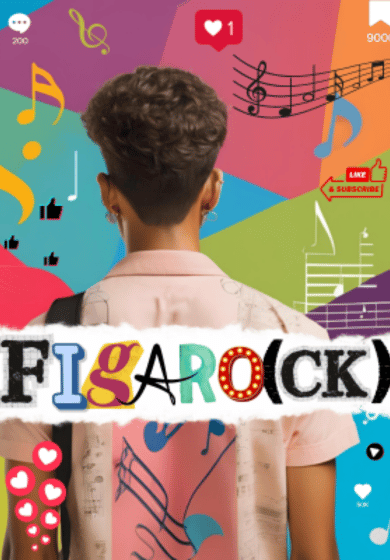
‘Figaro (CK)’ revolutionizes the young Regina Theater
When Pierre-Agustin de Beaumarchais brought for the first time Fígaro scene with The barber of Seville In 1775 it could little imagine that, centuries later, his character would end up becoming the stylist influencer of Figaro (CK)a montage with which the CIA The drill It wants to reflect on what it means to be revolutionary today. “Fígaro He aroused many awareness in his time because he was a smart serving fighting for his rights and complaining about the exploitation and privileges of the nobles, “he says Ferran Gonzàlezauthor and director of the work.

The idea came from the director of the company and the Young Theater Regina, Mariona Camposwhich wanted to produce a new family show for over 10 years, a strip that finds that it is quite forgotten in the theatrical offer. The Trepa had already addressed the preteen audience with topics such as nonconformity and social networks at The rebellionbased on the work of George Orwelland In the cloudstheir particular version of the satire ofAristophanes. With Figaro (CK) They have decided to delve further into these issues: “Right now there is no dialogue on the Internet, everyone wants to be issuing and making monologues, so going to the theater is already a revolutionary exercise in itself, because for a while you will not be the protagonist, you will have to silence and listen.”
The revolution at the rate of opera-rock
The young Figaro who in September goes on the stage of the young Regina Theater will discover that being a revolutionary does not mean having more likes or more Views. “We can do the revolution with small things, giving our seat on the subway or not being silent when someone insults a classmate,” says Campos, who plays one of the four storytellers who guide the protagonist in his learning.
Discover how ‘Figaro (CK)’ sounds here
Although the work defends values, it wants to flee the tone and reach the public through language, humor and music. Figaro (CK) Sounds to Pop-Rock, Broadway musical and a little too to Rossini and Mozartcomposers who were inspired by Fígaro in their operas. According to González, “it is a simple but ingenious staging, as was the character of Beaumarchais”, a theatrical spark that helped turn on the French Revolution. “Figaro did not go to the Bastille but he laughed at power to awaken the people of the village, we can all be revolutionary in our daily lives,” says Campos.
Founded in 1977 and with more than 50 premiered shows, La Trepa has made family theater a form of activism, especially in terms of youth audiences: “ They reach an age when they feel that they grow older and that theater is a thing of children who no longer speak of them and it is very difficult to fight this social construction, which is why we try to create other stories that appeal them. ”
More information and entries:







